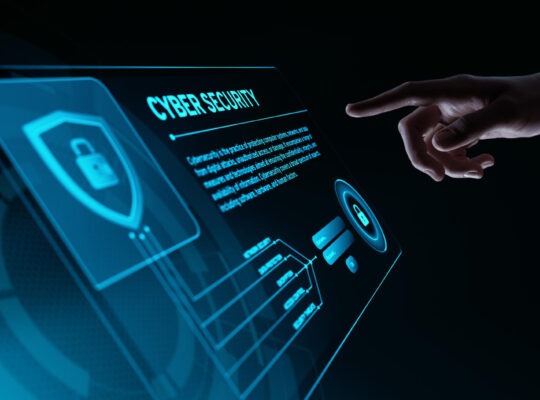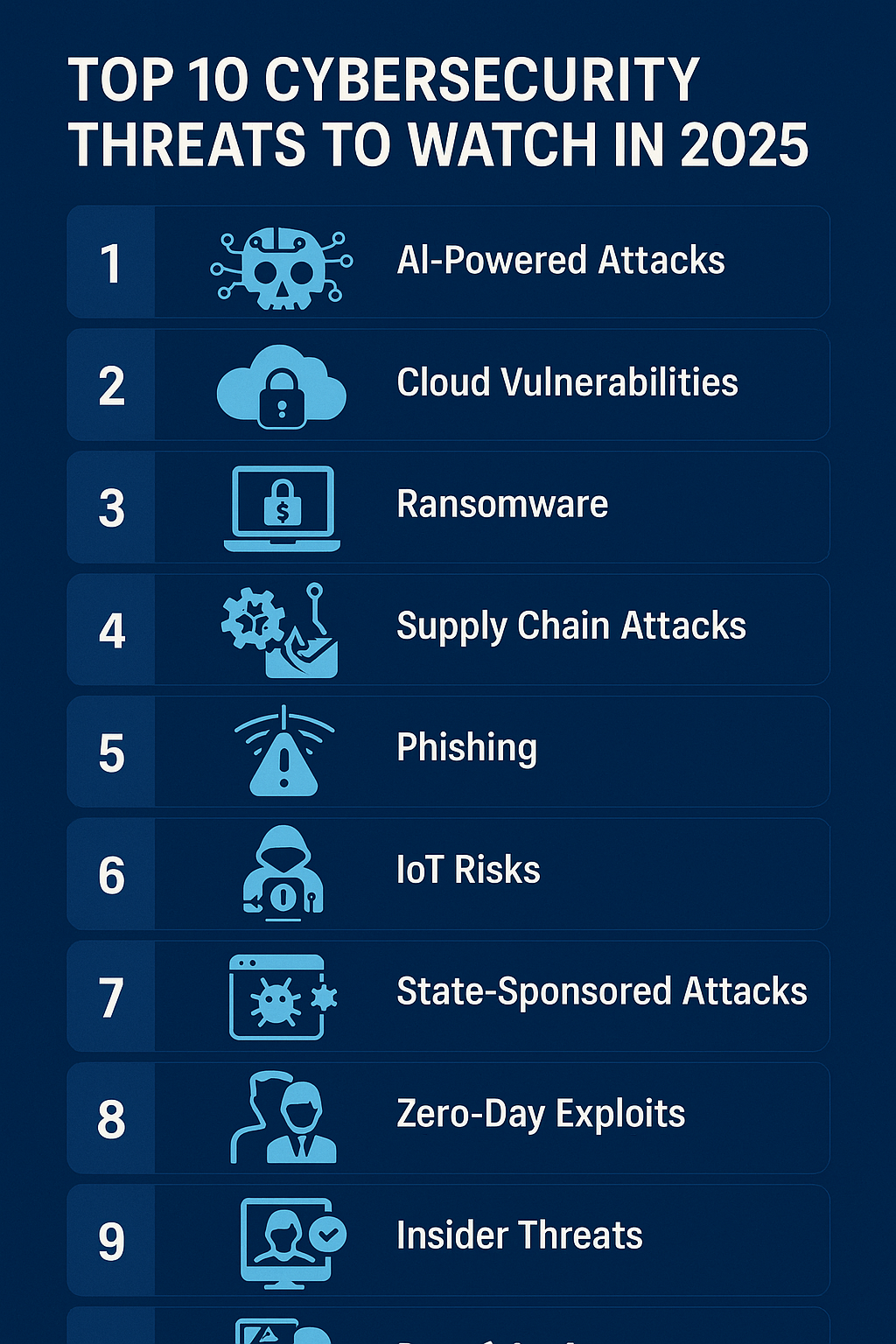What Is Cybersecurity
Cybersecurity is like a shield that protects your computers, phones, and online accounts from bad guys called hackers. These hackers try to steal personal stuff like photos, money, or passwords. In 2025, our lives will be even more connected to the internet, so keeping everything safe is a big deal.
Why Are Hackers Getting Smarter?
Every year, technology gets cooler. We have smart TVs, smart homes, and even smart fridges! But guess what? Hackers are getting smarter, too. Companies like Core Technologies Services, Inc. work hard to stay ahead of these threats, but hackers keep coming up with new tricks and tools to break into your stuff. That’s why we all must be extra careful online.
1. Tricky Phishing Emails
Phishing is when someone sends a fake message pretending to be someone you trust, like a bank, teacher, or even your favorite game. They want you to click a link or give away your password.
How to Stay Safe:
- Never click on weird links in emails or texts.
- Ask a parent or teacher if something looks fishy.
- Look closely at the email address—if it looks odd, don’t trust it!
2. Scary Ransomware Attacks
Ransomware is like a digital lock. Hackers use it to lock up your computer or files, and they say, “Pay us money or you’ll never get it back!”
Who Attacks?
- Schools
- Hospitals
- Even regular people like you and me
Stay Safe By:
- Backing up your stuff regularly
- Not downloading strange files
- Keeping your computer updated
3. Deep Fakes That Fool You
A deep fake is a fake video that looks very real. It might show a famous person saying something they never said.
Why It’s Dangerous:
- It can spread lies.
- It tricks people into believing something fake.
Always double-check videos from unknown sources.
4. Smart Robots That Hack (AI Attacks)
AI (Artificial Intelligence) is like a super-smart robot brain. It helps us do cool things, but hackers can use it too! They use AI to guess passwords, send fake messages, or trick people online—super fast.
Tip:
- Use strong passwords (more on that later!)
- Be alert when something seems “too smart” or too good to be true.
5. Hacking Smart Home Devices (IoT)
Do you have a smart speaker, smartwatch, or smart light bulb? They call these IoT (Internet of Things) devices. Hackers love them because they’re not always well-protected.
What You Can Do:
- Change the default password on these devices
- Update their software often
6. Breaking into Cloud Storage
The “cloud” is where we save stuff online instead of just on our devices. It’s like an invisible locker in the sky. But if someone breaks into it, they could steal your photos, homework, or private info.
Stay Safe:
- Use two-step verification
- Don’t share your cloud password with anyone
7. Phone Hacking
Phones can do almost everything a computer can—and hackers know it! They try to sneak into phones through fake apps or public Wi-Fi.
Safety Tips:
- Download apps only from trusted app stores
- Don’t use public Wi-Fi for important stuff
- Lock your phone with a password
8. Social Media Traps
Hackers love to trick people on apps like TikTok, Instagram, and Snapchat. They might send you a fake link or message pretending to be your friend.
Look Out For:
- Messages asking for your password
- Links that ask you to log in again
- Profiles that look fake or copy someone else
9. Inside Jobs (Insider Threats)
Sometimes, the danger isn’t from strangers—it’s from someone who already works at a company or school. They might steal data or help hackers.
It Can Happen When:
- Someone shares secrets on purpose.e
- A person loses a laptop or phone with private information.
10. Easy-to-Guess Passwords
Still using “123456” or “password123”? That’s a big no-no! Hackers guess these in seconds.
Strong Password Tips:
- Use a mix of letters, numbers, and symbols
- Don’t use the same password everywhere
- Try using a passphrase like “MonkeyPizza$2025!”
How YOU Can Stay Safe Online
You don’t have to be a computer genius to stay safe! Here are some easy tips:
- Keep your software updated
- Think before you click
- Don’t share personal info online
- Use strong passwords
- Ask an adult if something seems weird
Wrapping It Up
Cybersecurity in 2025 is more important than ever. Hackers are tricky, but with smart habits, you can stay safe. Learn about the dangers, stay alert, and don’t be afraid to ask for help. The internet is an amazing place—just make sure you use it wisely!
Questions People Ask a Lot (FAQs)
1. What is the biggest cyber threat in 2025?
- One of the biggest threats is ransomware—it locks your files and demands money.
2. Can kids be hacked?
- Yes! If you’re online, you need to be careful. Hackers don’t care how old you are.
3. What’s the easiest way to stay safe online?
- Use strong passwords and don’t click on strange links.
4. Is public Wi-Fi safe?
- Not always. Avoid using it for shopping or logging into important accounts.
5. What should I do if I think I’ve been hacked?
- Tell an adult, teacher, or IT person right away. Don’t wait!
6. How can I tell if a message is a scam?
- If it asks for money, personal info, or seems too good to be true, it’s probably a scam!
📌 7 Teleport Dr, Staten Island, NY 10311 USA
📞 +1.888.851.5253
📧 info@coreitx.com
Ready to elevate your business with cutting-edge IT solutions? Core IT offers complete IT solutions, including network setup, cloud computing, cybersecurity, managed services, and personalized IT consulting—all designed to fit your business needs. Whether you’re a startup or an enterprise, our expert team ensures your technology drives growth, efficiency, and security. Let’s transform your IT – get in touch with Core IT today and power your future with smarter solutions!







